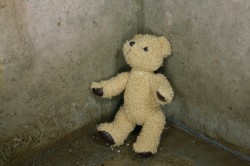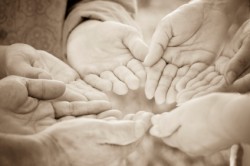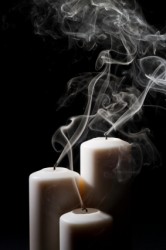One of the most difficult things to do after a loved one dies and the funeral has ended is to clear out the deceased’s personal possessions. There are no official guidelines about how long you should hold onto things like clothes, books, and personal mementos, which makes this process difficult. Is one week too soon to pack everything up and donate it to charity? What if you cannot or do not want to get rid of anything at all? Or, as is often the case with valuable objects, what if there are multiple family members all clamoring for the same thing? (more…)
Archive for the ‘What To Do When Someone Dies’ Category
What to Do When a Loved One Dies: Clearing Out Belongings
Wednesday, July 25th, 2018What Happens to a Bank Account when Someone Dies?
Friday, December 16th, 2016One of the most difficult tasks to undertake in the days and weeks (and sometimes months) following the death of a loved one is to close and/or manage their bank accounts. Unless your name is listed on the account (because you are the spouse of the deceased or because advance arrangements were made), you will have to go through a few hoops and hurdles to get all the accounts settled. (more…)
Disposing of a Loved One’s Personal Effects
Friday, January 16th, 2015 After the funeral plans have been completed and life has settled into what will be your new normal, it’s time to deal with the personal effects a death leaves behind. Although some of the deceased’s belongings might have been divided among descendants according to the will, most people leave closets (and even homes) full of stuff behind. Clothes, furniture, books, pictures, mementos of vacations long gone…all of these things eventually have to be sorted through and taken care of.
After the funeral plans have been completed and life has settled into what will be your new normal, it’s time to deal with the personal effects a death leaves behind. Although some of the deceased’s belongings might have been divided among descendants according to the will, most people leave closets (and even homes) full of stuff behind. Clothes, furniture, books, pictures, mementos of vacations long gone…all of these things eventually have to be sorted through and taken care of.
For most people, this is a bittersweet time. Painful memories are sure to arise as you sift through the remnants of a loved one’s lifetime, but you may also find that there are positive associations, as well. Although there is no right or wrong way to go about things, here are a few tips for sorting through a loved one’s personal effects after they are gone. (more…)
Kids and Death: Alternatives to a Funeral
Tuesday, September 2nd, 2014 Not every child is emotionally equipped to attend a funeral, and not every funeral is welcoming to attendees under a certain age. The decision of whether or not to bring kids to a funeral has long been a source of contention within families, and there is no easy answer regarding whether or not it’s acceptable. In almost all cases, it comes down to the child’s age, the child’s relationship to the deceased, and the wishes of the family.
Not every child is emotionally equipped to attend a funeral, and not every funeral is welcoming to attendees under a certain age. The decision of whether or not to bring kids to a funeral has long been a source of contention within families, and there is no easy answer regarding whether or not it’s acceptable. In almost all cases, it comes down to the child’s age, the child’s relationship to the deceased, and the wishes of the family.
Planning a Funeral for an Unborn Child
Tuesday, September 3rd, 2013 One of the most difficult things a parent can be asked to do is to plan the funeral or memorial service of a child who has yet to be born. Most experts agree that a formal funeral or service is an important part of the grieving process of giving birth to a child who isn’t meant for this world—and getting started early can help you process some of your emotions in advance.
One of the most difficult things a parent can be asked to do is to plan the funeral or memorial service of a child who has yet to be born. Most experts agree that a formal funeral or service is an important part of the grieving process of giving birth to a child who isn’t meant for this world—and getting started early can help you process some of your emotions in advance.
Most infant funerals in this type of situation occur within a week following your loss. Because you and your family will be undergoing a difficult trial (and possibly recovering from surgery or childbirth), having everything prepared ahead of time can allow you to focus on what really matters during this time.
Plan a Memorial Service Your Way
There is no rule that says you have to hold a traditional funeral for your child, or even that you have to hold one at all. You can call it a memorial service, a commemoration of life, a going home party, or even a birthday celebration. How you set it up is entirely up to you, though you may want to follow a few general guidelines.
- Contact a Funeral Home You Trust: Funeral homes tend to be familiar with the process of burying a newborn child, and will be able to coordinate services according to your wishes. Look for a home that offers sympathy and a friendly approach, as you’ll be entrusting your child’s legacy to their hands.
- Determine Your Interment Wishes: The decision of whether to bury or cremate a child can be an agonizing one. Bear in mind your religious preferences, your desire for portability (if you will be moving away at a later date and may want to visit the grave), finances, and personal wishes. Both of burial and cremation are viable options and can be accommodated in a way that is caring and appropriate.
- Take Your Time Making Decisions: It can be comforting for many families to choose the details of the burial. A special outfit for your child to wear, a hand-knitted blanket to be wrapped up in, the final casket, a burial location and headstone—even the flowers and special memorial tributes you want at the service. As these are one of the few things you’ll be able to do for your child, it’s okay to take your time and savor the process.
- Set a Date: Because many children in this situation are born via C-section or another planned delivery, you may be able to make advance memorial service plans. By setting a date and confirming location and other services, you allow family members to organize their schedules to join you.
Perhaps the most important thing you can do is locate resources—both online and in person—for individuals in your situation. Support groups, grief counselors, and other parents can help you through the process. In addition to providing you with tips for the memorial service, they can help you begin to understand your loss and what it means for your family’s future.
Jewish Funeral Planning Customs: Chevra Kadisha
Friday, August 23rd, 2013 Jewish funeral customs are some of the most unique and beautiful traditions in the burial industry. With a focus on a strong sense of community and mourning, these customs range from the strict preparation of the body to mourning habits like sitting shiva (a seven-day mourning period observed by the immediate family of the deceased).
Jewish funeral customs are some of the most unique and beautiful traditions in the burial industry. With a focus on a strong sense of community and mourning, these customs range from the strict preparation of the body to mourning habits like sitting shiva (a seven-day mourning period observed by the immediate family of the deceased).
In keeping with these religious rites is the chevra kadisha, a holy society (or organization) composed of individuals who oversee the process of preparing the body of the deceased for burial. Central to the concept of chevra kadisha are showing a proper level of respect for the body and ensuring that the ritual cleansing and dressing of the body is in keeping with Jewish standards.
Why Body Preparation is Important
In today’s funeral industry, body preparation tends to be a fairly invasive process. From autopsies and embalming to the thick layers of makeup put on to hold an open casket ceremony, there can be quite a bit of physical manipulation done to what remains of the person you loved.
In the Jewish tradition of chevra kadisha, this aggressive approach is set aside in favor of a more personalized purification rite. Those who are tasked with the body’s preparation are considered to be doing an incredibly good and selfless deed, as their task is one that is done for reasons of kindness.
Common Cremation Questions
Tuesday, July 30th, 2013 When it comes time to start funeral planning, you may find that you have lingering questions about cremation. Yes, we all know that it provides a lower-cost alternative to traditional burial, and that the outcome—an urn of ashes—can be scattered or kept on the mantelpiece as a kind of memorial to the deceased.
When it comes time to start funeral planning, you may find that you have lingering questions about cremation. Yes, we all know that it provides a lower-cost alternative to traditional burial, and that the outcome—an urn of ashes—can be scattered or kept on the mantelpiece as a kind of memorial to the deceased.
But what about the details? When is cremation not recommended? How personalized is the process of transforming the body into ashes? And where can you go to find more information?
The following list of common questions should help provide a baseline of understanding the cremation process. For additional information, you should always contact a local funeral home or the Cremation Association of North American (CANA).
Save on Burial Costs with a Funeral Committee
Friday, July 26th, 2013 There is perhaps no better way to cut back on funeral costs than to take a community approach to burial. Part of the reason funerals are so expensive is because most families go through the process alone. They meet with a funeral home, make decisions in isolation, and handle the entire burden by themselves. This type of process makes it difficult to share resources and even best practices—two things that can actually end up saving thousands of dollars on a funeral.
There is perhaps no better way to cut back on funeral costs than to take a community approach to burial. Part of the reason funerals are so expensive is because most families go through the process alone. They meet with a funeral home, make decisions in isolation, and handle the entire burden by themselves. This type of process makes it difficult to share resources and even best practices—two things that can actually end up saving thousands of dollars on a funeral.
What is a Funeral Committee?
Funeral committees are a community, church, or other group effort created to establish a safe place for families to turn for low-cost burials in keeping with local traditions. Most funeral committees exist within religious institutions (since so many burial practices have their roots in a specific religious ideology), and are formed as part of a congregation effort to make planning a funeral on everyone involved.
Requesting a Private Autopsy
Tuesday, July 23rd, 2013 In the funeral planning industry, most people associate autopsies with high-intensity drama and crime. Thanks in large part to television and the media, it is generally assumed that only deceased individuals who have died under suspicious circumstances are eligible to receive autopsies. While it is true that the majority of autopsies are performed for this reason, families may also request private autopsies for their own personal information.
In the funeral planning industry, most people associate autopsies with high-intensity drama and crime. Thanks in large part to television and the media, it is generally assumed that only deceased individuals who have died under suspicious circumstances are eligible to receive autopsies. While it is true that the majority of autopsies are performed for this reason, families may also request private autopsies for their own personal information.
Why Get a Private Autopsy?
If officials don’t suspect an unnatural cause of death, chances are they will release a body directly to the funeral home of your choosing. However, if you have any questions about your loved one’s health or cause of death, you may want to opt for an autopsy in order to seek answers.
Some of the more common reasons for requesting a private autopsy include:
- Questions about the cause of death
- Concerns about the treatment and care of the deceased prior to death
- Insurance settlements and medical malpractice issues
- Family health concerns (particularly if the deceased is believed to have died from a genetic disorder)
- Peace of mind





